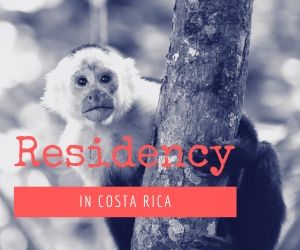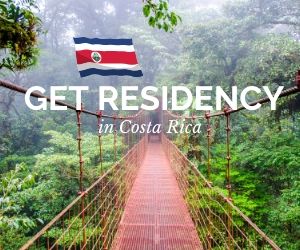Estebanh wrote:
Quote:
Tim,
Do you personally know of anyone who has had their land squatted in CR? Would love to hear about it.
Did you know that squatters have rights in most states of the US. Squatting is codified law in almost all states (including Florida)
Yes, I do, as I mentioned at least a dozen folks have told me of personal experiences since I started going to CR in 1987 or so. I have read articles in CR pubs and read the warnings on the embassy website. Recently, while talking with a friend of a friend, he mentioned he was a former CR land owner who who had the squatters ejected by an armed group that he hired and he implied some violence was involved. That is the most recent anecdotal info that I have and again, it is anecdotal and not proven fact, but I have no reason not to believe the guy. I will get more exact info the next time I hit the St. Pete Outback.
In reference to squatter rights in U.S. law, all I can say is if they still exist, they pale in comparison to what is allowed under CR Law to wit:
Squatters
The greatest potential danger for land ownership in absentia and at times even when the landowner resides on the property is the problem of squatters. Before investing in large expanses of land or even a cottage, or a quinta in the countryside, knowledge of the legal procedures along with due diligence is necessary to maintain one's property rights. Written into the Civil Code (hereafter referred to as 'CC') are numerous passages that deal with the rights of possession that are reminiscent of the earlier days of agricultural reforrn. Such clauses tend to favor the small, poor land-holder by upholding de facto "squatters rights" (CC Titulo II, CapÃtulo II).
Technically, squatters can only attempt to gain legal rights to a non-maritime property by peacefully occupying non-cultivated, unimproved agranian land over an extended period of time. The difficulty of maintaining one's rights over those of the squatters is due to the nebulous nature of the law and what legally passes as "non-cultivated" or "unimproved" land. It can be equally difficult to establish the duration of the squatter occupation, which is a crucial piece of evidence in the eviction process. It is imperative to understand that, according to the law, in case of doubt, "good faith" is presumed on the side of the squatters (CC Art. 284).
There are legal steps that can be taken to rid one's land of squatters. Procedurally, the eviction process is divided into three phases. The first phase is the eviction of squatters during the first three months of occupation. Such early discovery is key, as during this period one need not go to court. Theoretically, one need only alert the local police, who are then obliged to evict the squatters. The catch is that it can be extremely difficult to get the police to carry out their duty, and if one is not in the country, actual eviction is very difficult to verify. Even though eviction within the first three months is a rather straightforward procedure, at least in principle, early recognition can prove to be difficult if one is not residing on the property.
The second phase is after the initial three months of occupation but before one year. If squatters are "allowed" to squat on property for this duration of time, one must go to the courts and start the process of "administrative eviction" (Harris, 1995). The third phase is continued occupation for more than one year. According to the law, squatters have then achieved a "legal assumption," and the owners must go through an ordinary lawsuit process. Such a process has been described by attomey Robert Wells as "kind of like a root canal" (Harris, 1995). In order for the court to grant the property rights to squatters, they must prove that they have been on the land "uninterrupted," "non-challenged" and "peacefully" for ten years.
Although there are no foolproof, preventive measures for eliminating the problem of squatters on land owned in absentia, there are a few somewhat helpful steps that can be taken. Firstly, the propety should not appear abandoned and signs should be posted with the owner's name. The most important, albeit expensive, precaution is to hire a caretaker for the property. Great pains should be taken to secure a reliable caretaker, as well as another individual who can monitor the caretaker; it is not unconunon for a caretaker to squat on the land that he is paid to protect. The easiest way to avoid such a problem is to register the caretaker as an employee, which entails paying minimum wage and social security. One should also demand signed receipts from the caretaker as proof of payment.
A word of caution regarding squatters: the notion that squatters are simple campesinos is unfortunately not always correct. There have been numerous reports of armed, dangerous and organized squatters -- predominantly in the southern regions of Golfito and Pavones, and one such group killed an American landowner in 1997. There have been other reports of a armed squatters using intimidation and violence with caretakers and landowners in order to gain control of the land. Obviously, extreme caution should be exercised when purchasing land in Costa Rica to avoid areas with known organized squatters. The bottom line with purchasing land for future development or as a summer getaway is that, while it may be less expensive than other developed resort areas, it may not be the bargain it appears, as caretaker and attomey costs may accumulate very quickly.
link:
http://www.usembassy.or.cr/proprigh.html#SquatterLikening the 3 step legal process to a root canal does not make it seem as simple as other describe it.










